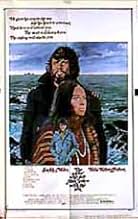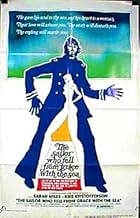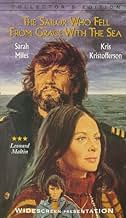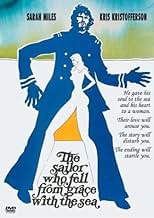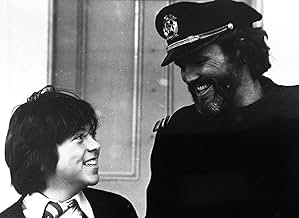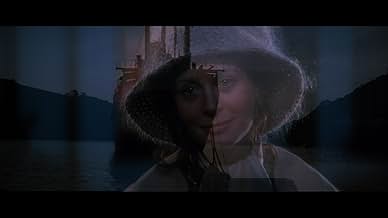IMDb RATING
6.2/10
1.8K
YOUR RATING
After his father dies, a disturbed young boy plots to take revenge on the new man in his mother's life.After his father dies, a disturbed young boy plots to take revenge on the new man in his mother's life.After his father dies, a disturbed young boy plots to take revenge on the new man in his mother's life.
- Director
- Writers
- Stars
- Awards
- 2 nominations total
Charles Adey-Grey
- Man in Tea Room
- (uncredited)
Mabel Etherington
- Woman in Tea Room
- (uncredited)
Juba Kennerley
- Man in Tea Room
- (uncredited)
- Director
- Writers
- All cast & crew
- Production, box office & more at IMDbPro
Featured reviews
I really enjoyed this movie back when it came out in 1976. It never showed up at the major theaters though. I saw it in one of the Dollar theaters. How it got away with an R rating back then I will never know. I had seen x-rated movies that had showed less. And the love scenes were a spread in Playboy. My girlfriend said is was because it had a plot. I do remember she was in a state of shock when we left. She was an 18 year old Southern Bapist Sunday School teacher at the time. Kris Kristofferson was never highly rated as an Actor but I think he did an excellent job in this movie. The child actors were completely believable. It was written by a Japanese gentleman and I am amazed at how well some examples of Japanese literature and movies translate to the US. The Magificent Seven ( AKA the Seven Samarai) and " A fistful of Dollars".
If you can find it on DVD I would highly recommend it.
If you can find it on DVD I would highly recommend it.
A spooky 'erotic' romantic thriller, with undertones and imagery of both THE INNOCENTS and LORD OF THE FLIES and even RYANS DAUGHTER this film had a bit of a notorious reputation in the late 70s because of the peephole sex scenes and the all too graphic mutilation of the family cat. Plenty of seniors went stampeding from the cinemas gasping especially after the cat got the chop, hissing and howling. The sight of Sarah Miles masturbating gave a us all a kooky preview to WHITE MISCHIEF made ten years later. There has been plenty of criticism about the translation of this Japanese novel into the foggy coast of Dover, but really it does not matter because the almost MOONSPINNERS-like spooky seaside look adds to what is genuinely an usual and compelling romantic drama with deeply strange and uneasy subplot about the wrath of destructive misguided young boys. Kris Kristofferson was every woman's preferred seaman in the 70s! Then Babs snared him in her horrible remake of A STAR IS BORN. SAILOR was a big hit in its day and deserves another look. It is eerie and romantic and quite dangerous. You almost expect Sarah Miles to narrate (all REBECCA-like) "last night I dreamed I went to masturbate...." I saw it on a double with CABARET. Those were the days!
The movie is indeed an adaptation of a novel by Yukio Mishima. Just to clarify, the novel is not an obscure work. Mishima is amongst Japan's most famous writers and was nominated for the Nobel Prize for Literature three times. Also, the plot of the original Japanese story does not happen in a remote fishing village; it happens in Yokohama, which is one of Japan's largest cities. Lastly, it does not happen in feudal Japan, a fact that would be very evident had someone read the book.
Now that that's been said, I've watched the movie since I very much enjoyed the novel. While I agree with most comments concerning the movie itself, I actually very much enjoyed the ending. Not only would have supplying an ending would have been taking too much liberty, but also it allows the viewer to imagine what would happen. Furthermore, to challenge another commenter, this sort of ending does work in movies and was a common motif of films during this era. Some other notable movies with endings similar to this include Francis Ford Coppola's "The Conversation" and "Parallax View."
Now that that's been said, I've watched the movie since I very much enjoyed the novel. While I agree with most comments concerning the movie itself, I actually very much enjoyed the ending. Not only would have supplying an ending would have been taking too much liberty, but also it allows the viewer to imagine what would happen. Furthermore, to challenge another commenter, this sort of ending does work in movies and was a common motif of films during this era. Some other notable movies with endings similar to this include Francis Ford Coppola's "The Conversation" and "Parallax View."
Though I never read the Japanese book from which this movie is based - I thought the comments of other posters missed a salient point in their reviews.
No one brought up the exploration of the focus on the "pure and perfect" order of things that is a backdrop for the exploration of the boys in the film. I'm assuming that that refers to the idea that there is such a thing and that when we deviate from it - meaning is somehow bastardized - and focus and purpose are lost. Unfortunately, when - during exploration - one destroys the object of one's investigation that too seems a bastardization of the "pure and perfect order."
A disturbing film but I do like Kris Kristofferson and he did write the music for the soundtrack which is beautiful. I tried many times to find a CD of the soundtrack but the movie has been out of print for so long that it is probably not possible to find one.
No one brought up the exploration of the focus on the "pure and perfect" order of things that is a backdrop for the exploration of the boys in the film. I'm assuming that that refers to the idea that there is such a thing and that when we deviate from it - meaning is somehow bastardized - and focus and purpose are lost. Unfortunately, when - during exploration - one destroys the object of one's investigation that too seems a bastardization of the "pure and perfect order."
A disturbing film but I do like Kris Kristofferson and he did write the music for the soundtrack which is beautiful. I tried many times to find a CD of the soundtrack but the movie has been out of print for so long that it is probably not possible to find one.
An unforgettable and profoundly disturbing story centered on a widow, Anne, and her only son, Jonathan, in a remote English seaside town. Jonathan belongs to a gang led by a precociously intelligent sociopath known only as Chief, who through sheer force of will and intellect, indoctrinates them with a quasi-Neitzchean philosophy of ultimate superiority and the non-existence of morality. When Kris Kristofferson's Captain Jim arrives in town, and strikes up a passionate relationship with the lonely Anne, Jonathan sees him as a heroic masculine prototype, removed from society and living a 'true' life on the open sea. But when the Captain decides to settle down and marry Anne, Jonathan takes it as an ultimate and unforgivable betrayal, and exacts a terrible revenge.
Based on the 1963 Mishima novel, "The Sailor Who Fell From Grace With The Sea" hints at many themes, from Jonathan's Oedipal obsession with spying on his mother's bedroom to his physical admiration of the Captain that verges on latent homosexuality. The atmosphere, masterfully created by veteran cinematographer Douglas Slocombe, is one of darkly brooding clouds, gray seas, and an air that constantly threatens rain. The (in)famous sex scenes are really not that explicit, and the casual violence exhibited by the children is far more shocking than any glimpse of breast or buttock.
The film, for all its brilliantly evocative atmosphere, excellent performances, and quietly brooding menace, is not without its flaws. The score is terrible, all mawkish piano and sickly clarinet. It is often overly intrusive and distracts from the overall sense of ripe stillness that director Carlino conjures throughout the film. But in general, the film is a remarkable experience, and one that any viewer is unlikely to forget quickly.
Based on the 1963 Mishima novel, "The Sailor Who Fell From Grace With The Sea" hints at many themes, from Jonathan's Oedipal obsession with spying on his mother's bedroom to his physical admiration of the Captain that verges on latent homosexuality. The atmosphere, masterfully created by veteran cinematographer Douglas Slocombe, is one of darkly brooding clouds, gray seas, and an air that constantly threatens rain. The (in)famous sex scenes are really not that explicit, and the casual violence exhibited by the children is far more shocking than any glimpse of breast or buttock.
The film, for all its brilliantly evocative atmosphere, excellent performances, and quietly brooding menace, is not without its flaws. The score is terrible, all mawkish piano and sickly clarinet. It is often overly intrusive and distracts from the overall sense of ripe stillness that director Carlino conjures throughout the film. But in general, the film is a remarkable experience, and one that any viewer is unlikely to forget quickly.
Did you know
- TriviaFirst English language filmed adaptation of a novel by Japanese writer Yukio Mishima.
- Alternate versionsUS DVD version is cut. Sex scenes of Sarah Miles are tamed down in US version.
- ConnectionsReferenced in Fantasm Comes Again (1977)
- How long is The Sailor Who Fell from Grace with the Sea?Powered by Alexa
Details
Contribute to this page
Suggest an edit or add missing content

